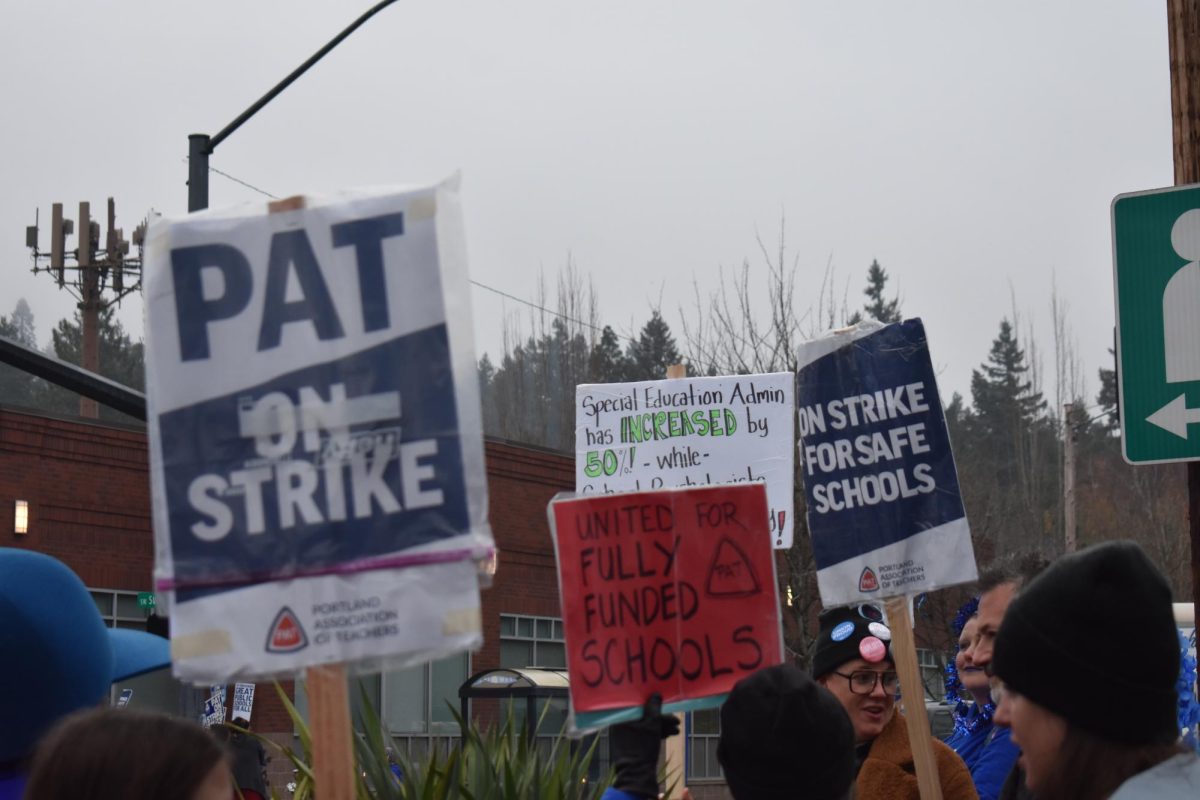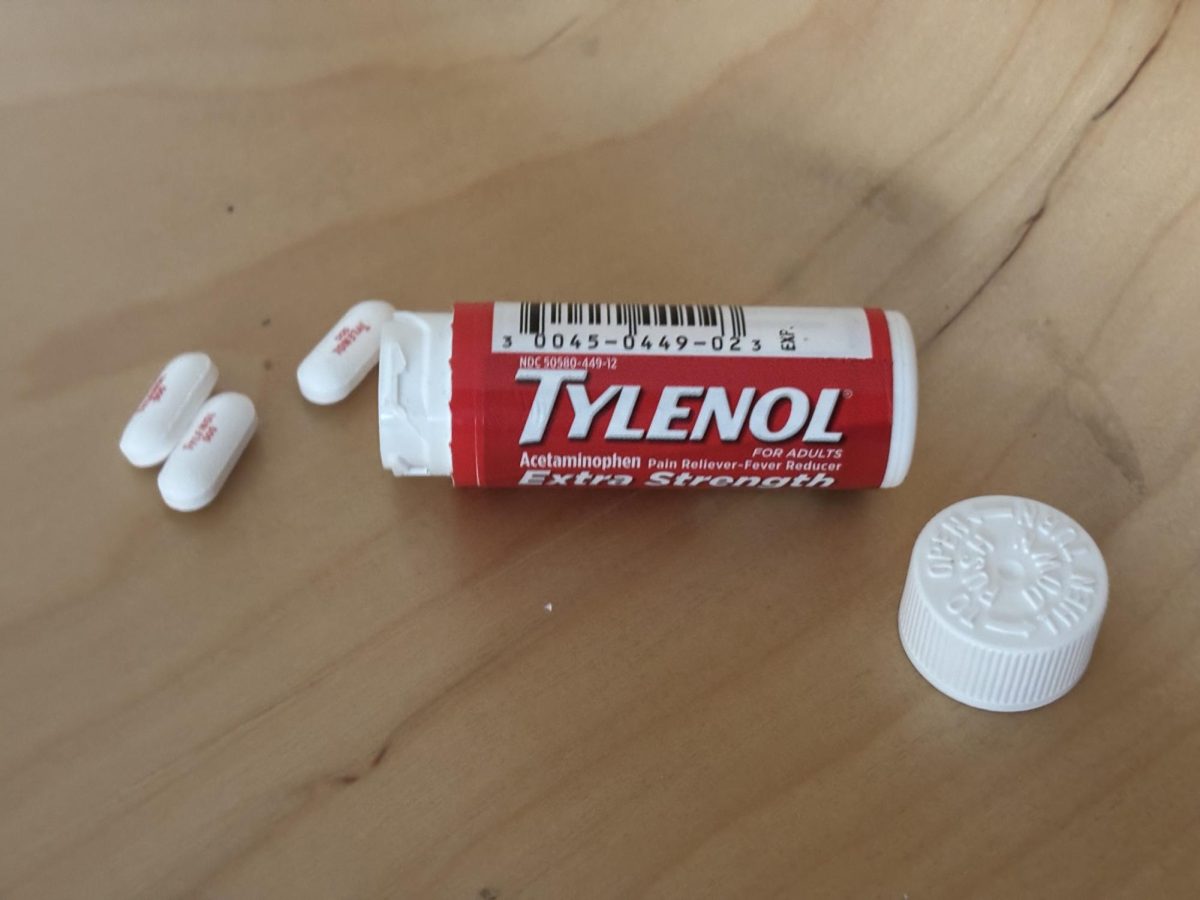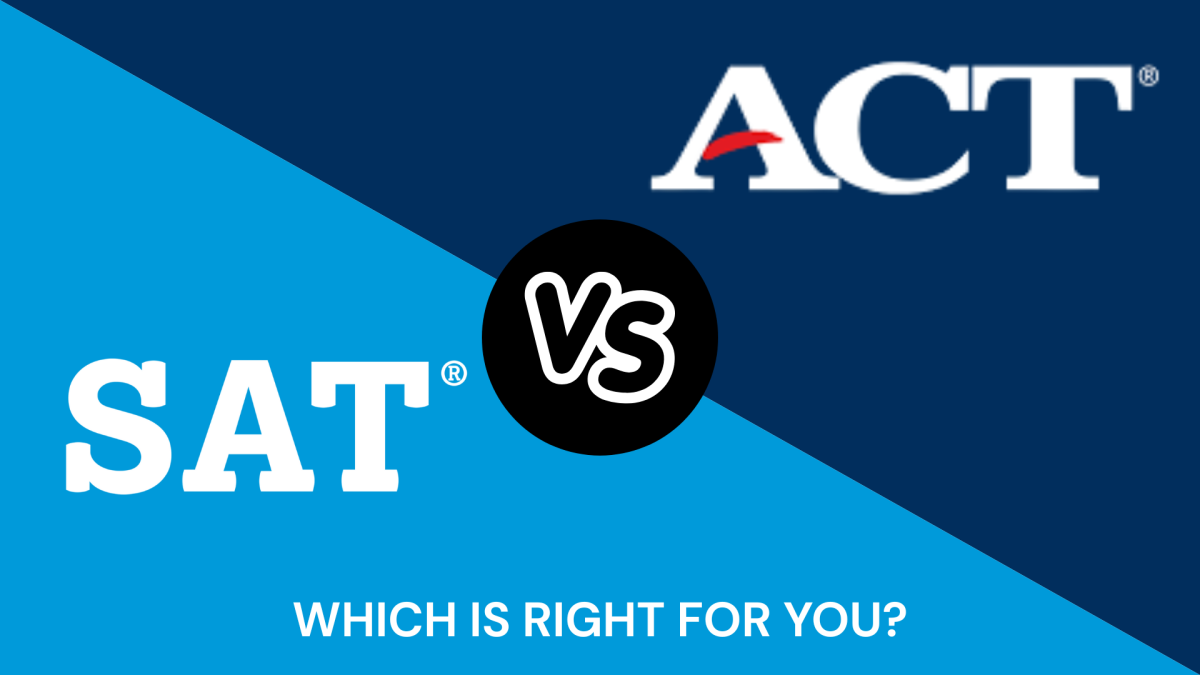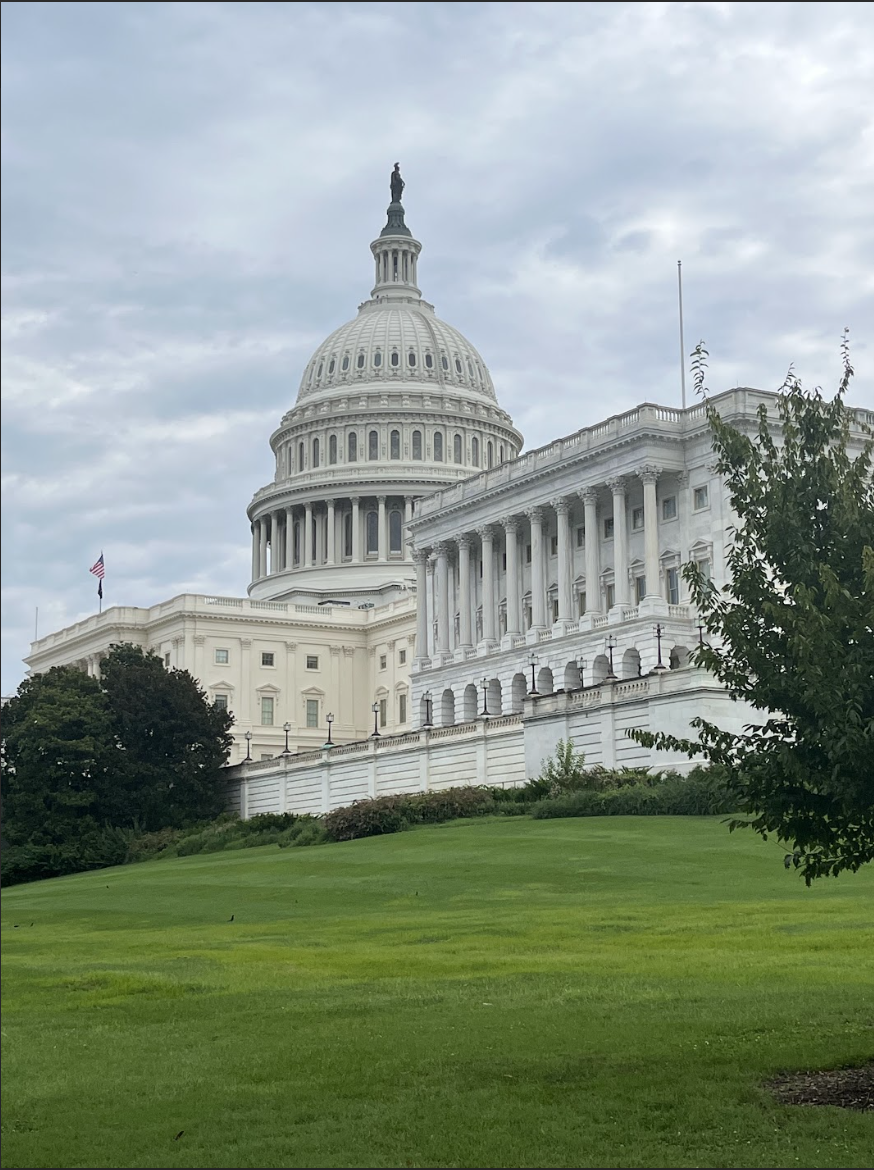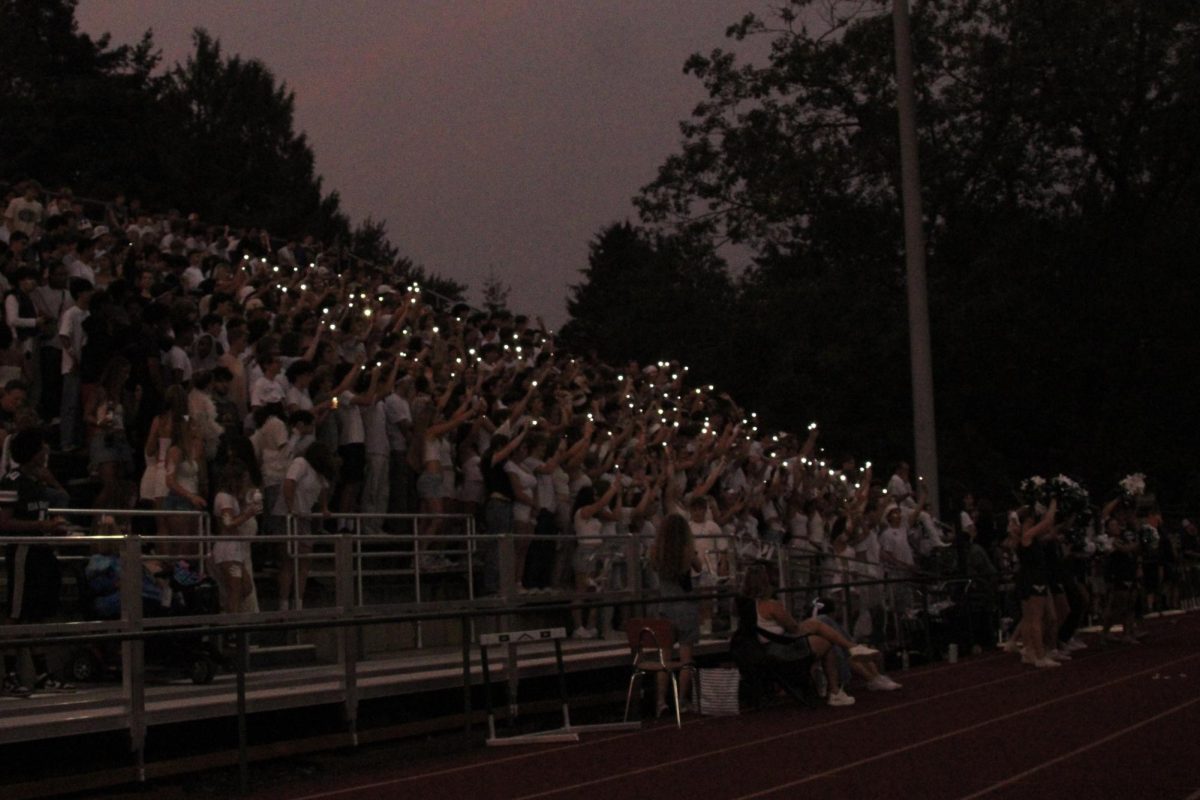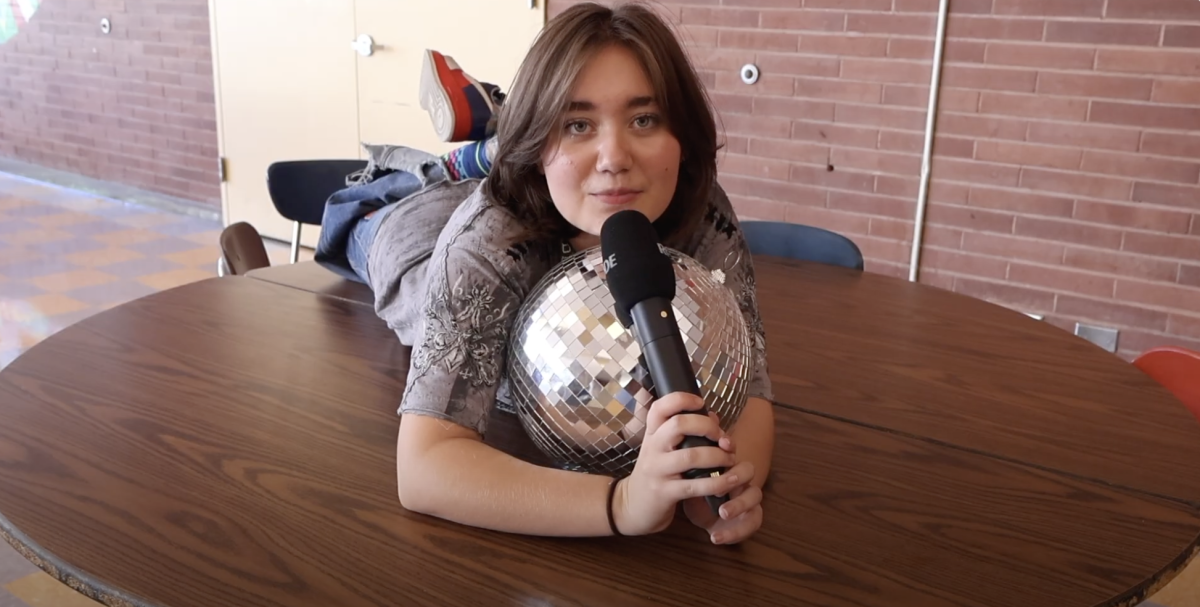Between Nov. 1 to 27, teachers in Portland took to the streets for a historic strike, advocating for higher wages, safer classrooms and more counselors. Before the strike, nine months of negotiating between Portland’s largest teachers union and Portland Public Schools (PPS) failed to find enough common ground for an agreement. After 26 days of striking, the PAT and PPS bargained out a new contract, causing school to resume the next day.
Monday, Nov. 27, the day after the agreement was hammered out, the morning bell rang at 8:30 signaling the start of a new school day for 49,000 students. It was a sound sorely missed by some and dreaded by others. However, it was a sound that ushered in what seemed like the first signs of normalcy in a hectic month. Despite school starting again, the agreement was only tentative. This meant that PAT members hadn’t voted on it yet, nor the school board members. If the majority of teachers voted against it, strikes would resume, and the brief sense of normalcy would come to a close. With so much on the line, all eyes were on the votes.
Many teachers didn’t like that school started before the contract was finalized. According to Andrew Butterfield, a ceramics teacher at Ida B. Wells and strike organizer, “The decision to head back into the class without a ratification vote made many teachers upset. It felt like their democratic voice was taken away and we were forced into accepting the agreement sight unseen.” There was a lot of pressure on union members to vote “yes.” If school started again and then closed down, it would infuriate parents, potentially costing the teachers’ public image. In the end, the teachers voted in favor of the contract, with 93% of union members voting, and 94.7% voting yes.
“Had we refused to go back to class we might have made more gains in one area but it would have been at the expense of something else. There was not likely to be more gained from a prolonged strike,” said Butterfield. The school board, wanting schools to reopen, voted unanimously in favor.
The overwhelming majority who voted for this could be attributed to the fatigue of the strike, but also was probably the first major win teachers had seen in what seemed like forever. Butterfield, writing via email, said “In all of the previous negotiations we have always lost aspects of our contractual rights because we decided to accept poor contracts rather than vote to strike. This is the first contract I have seen in which we lost nothing and gained in many areas. I personally am happy we were able to make the improvements we have.”
There has been criticism against the new agreement by one group—students. Many PPS students are upset about the cutting of the first week of winter break. To many, it feels like they’re being unfairly punished for a strike that wasn’t their fault and wished the contract, which substituted days missed on the strike with winter break days, wasn’t ratified. However, it looks like the district is rolling on ahead, and this year’s winter break will be one week shorter.


